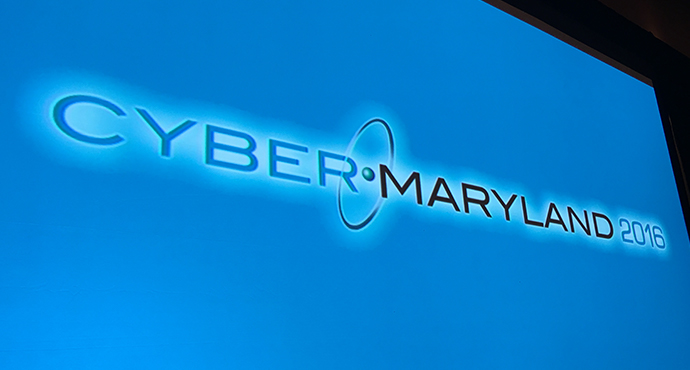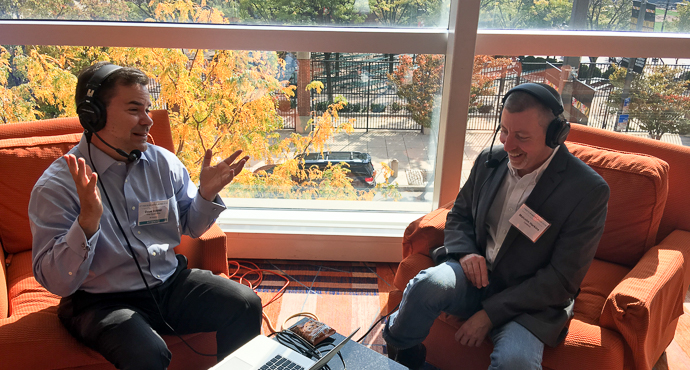
CyberMaryland 2016.
NSA Director Admiral Michael Rogers opened CyberMaryland with a keynote that called for more efforts in cyber security workforce development (he noted NSA's internship program with particular satisfaction), more public-private cooperation (he thinks the private sector should tell the Government what kind of information it needs--the requirements for information sharing in particular should originate in the private sector), faster acquisition authority (an FY 2017 pilot in US Cyber Command will, he hopes, prove a successful model for the future), and some serious national introspection about what foreign adversaries in cyberspace mean for American society and the American political system.
His emphasis on the importance was workforce development was brought into sharper relief by those who introduced him: a high school junior from Baltimore County's Loyola Blakefield school (and its award-winning cyber program) did the honors.

At CyberMaryland 2016, the CyberWire podcast host, Dave Bittner, sits down with Malcolm Harkins, Cylance's Chief Security and Trust Officer. Photo by the CyberWire.
Last night's induction ceremonies for the National Cyber Security Hall of Fame were marked by graceful speeches by those who received the award. Again, the Class of 2016 included Dan Geer (Chief Information Security Officer at In-Q-Tel), Lance J. Hoffman (Distinguished Research Professor of Computer Science, The George Washington University), Horst Feistel (cryptographer and inventor of the United States Data Encryption Standard), Paul Karger (High Assurance architect, prolific writer and creative inventor), Butler Lampson (Adjunct Professor at MIT, Turing Award and Draper Prize winner), Leonard J. LaPadula (co-author of the Bell-LaPadula model of computer security), and William Hugh Murray (pioneer, author and founder of the Colloquium for Information System Security Education). Congratulations to them all.
Most of the newest members of the Hall of Fame saw difficult challenges ahead for cyber security even as they acknowledged their colleagues, students and mentors. We'll note something Dan Geer closed with, giving him the last word. Referring a NORAD commanding general's remark from the mid-1950s that the price of security was inconvenience, Geer suggested that our civilization faced a future in which security, freedom and convenience would increasingly find themselves in tension. His advice: "Pick two."
